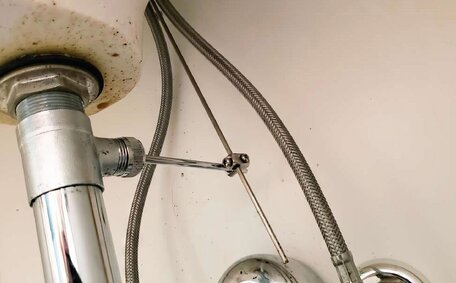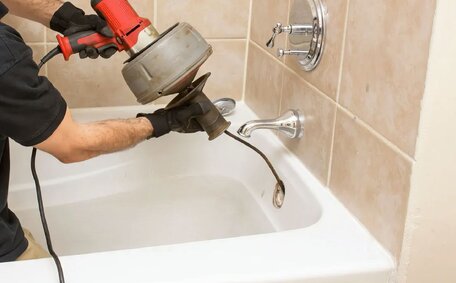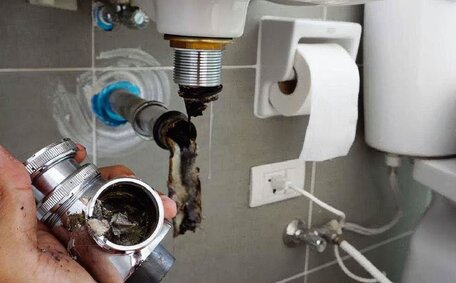Average lifespan of common hot water systems
The average lifespan of hot water systems varies by type:
- Electric hot water systems, including high-performance models, have a lifespan of 8 to 12 years
- Gas hot water systems have a lifespan of 10 to 15 years on average.
- Solar hot water systems can last 15-20 years with diligent maintenance
- Hot water systems such as heat pumps and instantaneous models often last 10-15 years
Multiple factors can affect the average lifespan of hot water systems; these include water quality, usage frequency, installation standards, and regular maintenance such as anode rod replacement and sediment drainage.
Factors impacting lifespan
Several factors affect the operation and longevity of your water heater:
Water Quality
Hard water with high mineral content, such as lime and calcium, can accumulate and cause damage, potentially reducing system lifespan. Such accumulation diminishes efficiency and can damage components. Using a water softener can improve water quality and extend the life expectancy of your hot water system.
Usage Patterns
Understanding how long your unit is under strain can help offer insights into the lifespan of elements and thermostats. Systems in households with high hot water usage may not see their hot water system last as long as those with minimal use. Adjusting usage patterns can extend the lifespan your hot water system enjoys, ensuring it remains effective for many years.
Installation & Maintenance
A poorly installed system with incorrect pressure valve settings or inadequate insulation is prone to premature failure, often shortening the lifespan your hot water system might otherwise have. Neglecting sediment drainage or anode rod replacement could shorten the system’s lifespan. Proper installation and ongoing maintenance are vital to ensure your water heater can function optimally.
System Components
Higher-end tanks designed to efficiently pump water, heat pump hot units, thermostats, and superb insulation in the system your home employs enhance reliability and durability. Choosing high-quality components can increase your hot water system’s longevity. For their reliability and performance, for lasting satisfaction, consider quality brands such as Rheem or Rinnai for their known reliability and service.
Adhering to manufacturer guidelines, addressing water quality, ensuring proper installation, and regular maintenance can significantly improve the longevity of your water heater.
Extending lifespan through regular maintenance
Regular maintenance is crucial for maximising their potential lifespan. Key maintenance tasks include:
Annual Flushing
Sediment and mineral build-up at the bottom of the tank can compromise heating efficiency. Draining water from the bottom of the tank once a year flushes out sediment and helps ensure your water system can last significantly longer.
Replacing Anode Rod
The anode rod situated within the storage tank draws corrosion away from the tank walls, significantly prolonging the heater’s lifespan. Replacing the anode rod every 5 years can prevent corrosion and protect the tank.
Inspecting Elements & Thermostats
Components smartly designed with a heating element to efficiently heat water, including the heat exchanger and thermostats, inevitably wear out, but maintenance can extend the lifespan your system enjoys. Having them tested during annual servicing allows early detection of faults so components can be replaced before failure.
Regular checks on valves, insulation, and pipe condition also optimize performance and durability. With diligent maintenance, you’re doing a great job at ensuring your hot water system in your residence remains operative and efficient for a prolonged period.
Choosing the right system for your needs
When selecting a new hot water system, it’s crucial to consider your household’s unique requirements so you choose the optimal system.
Household Size & Usage
Larger households typically benefit from systems with fast recovery rates like gas or continuous flow electric heaters. Smaller households may prioritise energy-efficiency with tankless water heaters or solar alternatives.
Available Energy Sources
If you lack access to mains gas, a gas hot water system would not be suited; instead, a water system your home could greatly benefit from like a good quality electric, solar or heat pump would be recommended. For homes with mains gas, we highly recommend gas systems, while systems with solar panels work magnificently for eco-friendly households.
Hard water can impact system lifespan and efficiency. Water softeners or scale-resistant heaters may be advised. We can evaluate your water quality to recommend an appropriate hot water service setup.
Budget
Initial purchase and operational costs differ significantly across the various hot water systems available. Consider efficiency star ratings and expected lifespan when calculating total long term costs before deciding.
With over 25 years of experience, Sans Souci Plumbing can expertly assess your needs and recommend a suitable, high-quality hot water system within your budget. Contact us for same-day advice tailored to your unique water system needs.
When to repair vs. replace your system
The decision to repair or replace your hot water heater involves considering several factors relating to your system’s past performance:
Age of the System
Investing in a new water heater is sensible when your current unit is over a decade old and may be more cost-effective than repairs. Aging systems may break down more frequently and become less efficient, signalling it’s time to reassess your hot water needs.
Repair Frequency
Frequent repairs may indicate deeper issues, making system replacement a more logical choice for enduring hot water service. However, isolated repairs on an otherwise dependable system can prolong its functionality, as timely maintenance may delay the need for replacement.
Efficiency Losses
Reduced heating capacity, slow recovery times, and high energy bills show efficiency declines. When high operating costs are disproportionate to the hot water output, considering replacement may offer a better long-term solution.
Personalised Advice
Leveraging over 25 years of professional experience, for all your plumbing needs, Sans Souci Plumbing can help with your hot water system, assess the condition of your water heaters and advise on repairs or the need for a modern, efficient new one.
Contact us today to discuss your situation and get expert recommendations on optimising your home’s hot water supply.






